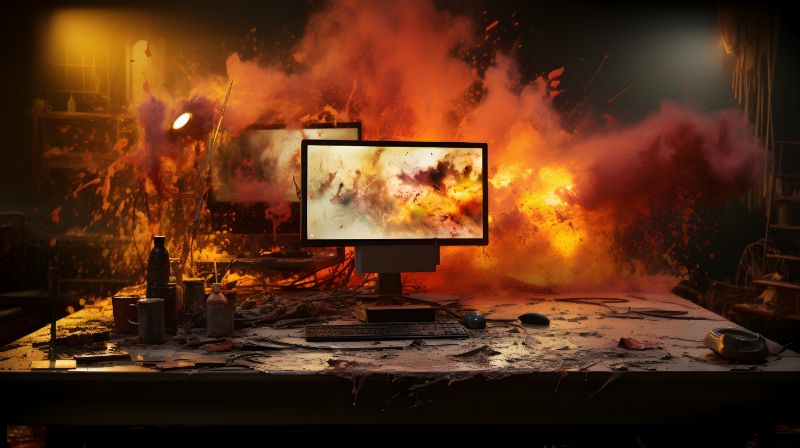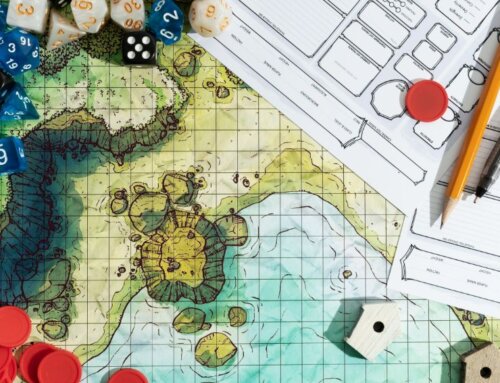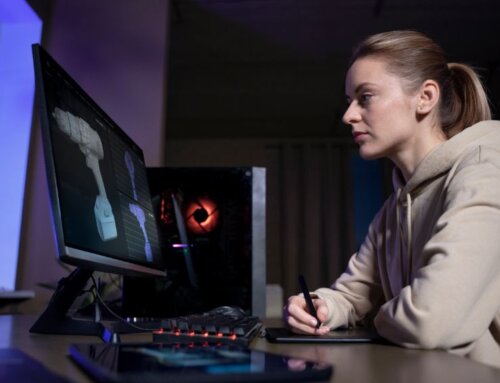When your PC plummets into a pit of problems, pausing your gameplay, the frustration can be palpable. But fear not, for there are ways to navigate this treacherous terrain.
By unraveling the mysteries behind these crashes and implementing strategic solutions, you can reclaim your gaming throne.
So, what steps can you take to ensure your gaming sessions remain uninterrupted and your PC stays steady in the face of digital dilemmas?
Key Takeaways
- Regularly clean dust from internal components to prevent crashes
- Update drivers to ensure optimal communication and performance
- Efficiently manage background programs for smoother gameplay
- Proactively address overheating to avoid system crashes
Common Causes of PC Crashes
When troubleshooting PC crashes during gaming, identifying common causes is crucial to pinpointing the root issues efficiently. Two key factors to consider are hardware maintenance and system optimization. Proper hardware maintenance involves regularly cleaning dust from internal components, ensuring adequate ventilation, and checking for any physical damage.
System optimization includes tasks like updating drivers, managing background processes, and optimizing in-game settings for better performance. By maintaining your hardware and optimizing your system settings, you can reduce the likelihood of crashes during gaming sessions. Paying attention to these aspects proactively can help improve your overall gaming experience and prevent interruptions caused by system instability.
Driver Updates for Gaming Stability
To enhance gaming stability and prevent crashes, updating drivers is essential for ensuring optimal communication between hardware and software.
Hardware maintenance plays a crucial role in driver updates, as outdated drivers can result in performance issues, crashes, and compatibility problems with newer games.
By keeping drivers up to date, you can fix bugs, enhance performance, and optimize system resources, leading to a smoother gaming experience.
Regularly checking for driver updates from official websites is key to preventing crashes and ensuring system stability.
Tools like Driver Easy can simplify the process of updating drivers for gaming PCs, reducing the risk of crashes and keeping your system running smoothly.
Prioritizing driver updates is a proactive step towards software optimization for better gaming performance.
Managing Background Programs Effectively
For smoother gameplay and improved system performance, efficiently managing background programs is crucial. System optimization relies on effective resource allocation, ensuring that the computer’s memory is dedicated to running games rather than unnecessary programs.
By closing unnecessary background programs, you free up memory, preventing lag and game freezes during gameplay. Task Manager is a valuable tool for identifying high-memory programs running in the background, allowing you to disable them before gaming. This proactive approach not only prevents system crashes but also enhances overall gaming performance.
Prioritizing the allocation of resources to the game rather than background tasks can significantly impact the smoothness of your gameplay experience. Remember, managing background programs effectively is key to optimizing your system for gaming.
Preventing Computer Overheating
To prevent computer crashes during gaming, it’s essential to proactively address the issue of overheating by implementing effective cooling solutions. Regular maintenance is crucial to ensure proper ventilation and cooling system efficiency.
Clean dust and debris from fans and heat sinks to enhance airflow and dissipate heat effectively. Consider utilizing cooling pads, extra fans, or liquid cooling systems to lower temperatures while gaming.
Monitoring CPU and GPU temperatures regularly is key to preventing overheating problems and potential system crashes. By staying vigilant with maintenance and investing in suitable cooling solutions, you can significantly reduce the risk of overheating-related PC crashes during gaming sessions.
Checking Hardware Compatibility
Ensure the compatibility of your CPU, GPU, RAM, and motherboard with the games you intend to play to avoid performance issues and potential crashes. To troubleshoot hardware compatibility, check the system requirements of the game against your components.
Compare the minimum and recommended hardware specifications provided by the game developers to determine if your setup meets the necessary criteria. Utilize online compatibility tools for a quick assessment.
Failure to match your hardware with the game requirements can result in performance bottlenecks, crashes, or the game not running at all. If your current hardware falls short, consider upgrading individual components or the entire system to align with the game’s specifications.
Addressing hardware compatibility proactively can prevent gaming disruptions caused by incompatible components.
Addressing Malware and Viruses
Guard your gaming experience against disruptions by proactively addressing malware and viruses on your PC. Run regular antivirus scans to detect and remove malicious software that could lead to game crashes. Updating your antivirus program is crucial to stay protected against the latest threats.
Avoid downloading files from untrusted sources to prevent malware infections, which can severely impact your gaming system’s performance. Opt for a reputable antivirus solution with real-time scanning and threat detection features for enhanced security.
Malware can interfere with system processes, causing crashes during gameplay. Maintaining a clean system through effective malware prevention is essential for optimizing your gaming system and ensuring smooth PC performance.
Ensuring Sufficient Memory and Performance
Monitor your computer’s RAM capacity closely to ensure optimal gaming performance and prevent potential crashes. Memory optimization is crucial for a smooth gaming experience.
Keep an eye on your CPU and GPU performance to ensure they aren’t overwhelmed during gameplay. Performance monitoring helps in identifying any bottlenecks that could lead to crashes.
Adjust in-game settings to find the right balance between performance and visuals, enhancing your gaming sessions. If your hardware falls short of the game’s requirements, consider upgrading components like RAM or GPU to improve performance.
Closing unnecessary background programs can free up memory and boost overall system performance while gaming. Stay vigilant about maintaining sufficient memory and monitoring performance to prevent crashes and enjoy uninterrupted gaming.
Conclusion
To ensure uninterrupted gaming sessions, it’s crucial to address common causes of PC crashes. Stay up-to-date with driver updates, manage background programs, prevent overheating, check hardware compatibility, address malware, and ensure sufficient memory and performance.
By following these steps, you can minimize the risk of PC crashes and enjoy a smooth gaming experience.
When your PC plummets into a pit of problems, pausing your gameplay, the frustration can be palpable. But fear not, for there are ways to navigate this treacherous terrain.
By unraveling the mysteries behind these crashes and implementing strategic solutions, you can reclaim your gaming throne.
So, what steps can you take to ensure your gaming sessions remain uninterrupted and your PC stays steady in the face of digital dilemmas?
Key Takeaways
- Regularly clean dust from internal components to prevent crashes
- Update drivers to ensure optimal communication and performance
- Efficiently manage background programs for smoother gameplay
- Proactively address overheating to avoid system crashes
Common Causes of PC Crashes
When troubleshooting PC crashes during gaming, identifying common causes is crucial to pinpointing the root issues efficiently. Two key factors to consider are hardware maintenance and system optimization. Proper hardware maintenance involves regularly cleaning dust from internal components, ensuring adequate ventilation, and checking for any physical damage.
System optimization includes tasks like updating drivers, managing background processes, and optimizing in-game settings for better performance. By maintaining your hardware and optimizing your system settings, you can reduce the likelihood of crashes during gaming sessions. Paying attention to these aspects proactively can help improve your overall gaming experience and prevent interruptions caused by system instability.
Driver Updates for Gaming Stability
To enhance gaming stability and prevent crashes, updating drivers is essential for ensuring optimal communication between hardware and software.
Hardware maintenance plays a crucial role in driver updates, as outdated drivers can result in performance issues, crashes, and compatibility problems with newer games.
By keeping drivers up to date, you can fix bugs, enhance performance, and optimize system resources, leading to a smoother gaming experience.
Regularly checking for driver updates from official websites is key to preventing crashes and ensuring system stability.
Tools like Driver Easy can simplify the process of updating drivers for gaming PCs, reducing the risk of crashes and keeping your system running smoothly.
Prioritizing driver updates is a proactive step towards software optimization for better gaming performance.
Managing Background Programs Effectively
For smoother gameplay and improved system performance, efficiently managing background programs is crucial. System optimization relies on effective resource allocation, ensuring that the computer’s memory is dedicated to running games rather than unnecessary programs.
By closing unnecessary background programs, you free up memory, preventing lag and game freezes during gameplay. Task Manager is a valuable tool for identifying high-memory programs running in the background, allowing you to disable them before gaming. This proactive approach not only prevents system crashes but also enhances overall gaming performance.
Prioritizing the allocation of resources to the game rather than background tasks can significantly impact the smoothness of your gameplay experience. Remember, managing background programs effectively is key to optimizing your system for gaming.
Preventing Computer Overheating
To prevent computer crashes during gaming, it’s essential to proactively address the issue of overheating by implementing effective cooling solutions. Regular maintenance is crucial to ensure proper ventilation and cooling system efficiency.
Clean dust and debris from fans and heat sinks to enhance airflow and dissipate heat effectively. Consider utilizing cooling pads, extra fans, or liquid cooling systems to lower temperatures while gaming.
Monitoring CPU and GPU temperatures regularly is key to preventing overheating problems and potential system crashes. By staying vigilant with maintenance and investing in suitable cooling solutions, you can significantly reduce the risk of overheating-related PC crashes during gaming sessions.
Checking Hardware Compatibility
Ensure the compatibility of your CPU, GPU, RAM, and motherboard with the games you intend to play to avoid performance issues and potential crashes. To troubleshoot hardware compatibility, check the system requirements of the game against your components.
Compare the minimum and recommended hardware specifications provided by the game developers to determine if your setup meets the necessary criteria. Utilize online compatibility tools for a quick assessment.
Failure to match your hardware with the game requirements can result in performance bottlenecks, crashes, or the game not running at all. If your current hardware falls short, consider upgrading individual components or the entire system to align with the game’s specifications.
Addressing hardware compatibility proactively can prevent gaming disruptions caused by incompatible components.
Addressing Malware and Viruses
Guard your gaming experience against disruptions by proactively addressing malware and viruses on your PC. Run regular antivirus scans to detect and remove malicious software that could lead to game crashes. Updating your antivirus program is crucial to stay protected against the latest threats.
Avoid downloading files from untrusted sources to prevent malware infections, which can severely impact your gaming system’s performance. Opt for a reputable antivirus solution with real-time scanning and threat detection features for enhanced security.
Malware can interfere with system processes, causing crashes during gameplay. Maintaining a clean system through effective malware prevention is essential for optimizing your gaming system and ensuring smooth PC performance.
Ensuring Sufficient Memory and Performance
Monitor your computer’s RAM capacity closely to ensure optimal gaming performance and prevent potential crashes. Memory optimization is crucial for a smooth gaming experience.
Keep an eye on your CPU and GPU performance to ensure they aren’t overwhelmed during gameplay. Performance monitoring helps in identifying any bottlenecks that could lead to crashes.
Adjust in-game settings to find the right balance between performance and visuals, enhancing your gaming sessions. If your hardware falls short of the game’s requirements, consider upgrading components like RAM or GPU to improve performance.
Closing unnecessary background programs can free up memory and boost overall system performance while gaming. Stay vigilant about maintaining sufficient memory and monitoring performance to prevent crashes and enjoy uninterrupted gaming.
Conclusion
To ensure uninterrupted gaming sessions, it’s crucial to address common causes of PC crashes. Stay up-to-date with driver updates, manage background programs, prevent overheating, check hardware compatibility, address malware, and ensure sufficient memory and performance.
By following these steps, you can minimize the risk of PC crashes and enjoy a smooth gaming experience.
More info:
https://ps3trophies.co.uk/entertainment/2024/04/19/what-are-arcade-games/
https://ps3trophies.co.uk/entertainment/2024/04/24/how-to-watch-psg-games/






Leave A Comment